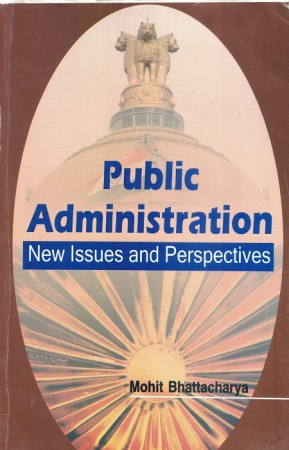



0 Ratings
0 Reviews
436 Views
AS a dynamic discipline, public administration has been steadily devolving in response to die ever-changing practices in the real world of adm .... Read More
AS a dynamic discipline, public administration has been steadily devolving in response to die ever-changing practices in the real world of administration and governance. Usually, the more important factors cited in this context are the information and communication revolution, globalisation’, and a distinctly noticeable peoples movement in many places urging for more democratisation and decentralisation. Contextually, some of the major contemporaneous changes that deserve special mention include a frantic search for new ways of governing' leading to (a) the introduction of what is now widely known as New Public Management, (b) the widening of the range and scope of public administrative agencies with gradual cooptation of multiple actors such as the civil society, the people at large, and even the private sector in a partnering role, (c) the opening up of public administration and making it more decentralised, transparent and accountable to the public, (d) the engendering' of administration by creating more scope for women to actively participate in administration, and (d) the harking back to the much-needed ethical dimensions of public administration.
| Sr | Chapter Name | No Of Page |
|---|---|---|
| 1 | 1. introduction | 13 |
| 2 | 2. Administrative Reforms and Changing Public Administration | 28 |
| 3 | 3. Emerging Issues | 13 |
| 4 | 4. New Perspectives in Administrative Studies | 24 |
| 5 | 5. Revisiting Weber's Theories of Domination and Bureaucracy | 20 |
| 6 | 6. Revisiting Woodrow Wilson | 22 |
| 7 | 7. Politics-Administration Dichotomy Revisited | 23 |
| 8 | 8. Max Weber Resurrected: The Neo-Weberian State | 10 |
| 9 | 9. The Three Minnowbrooks | 13 |
| 10 | 10. Feminist Thought and Public Administration | 29 |
| 11 | 11. Accountability: The Social Dimension | 16 |
| 12 | 12. Models of Public Administration Reform | 16 |